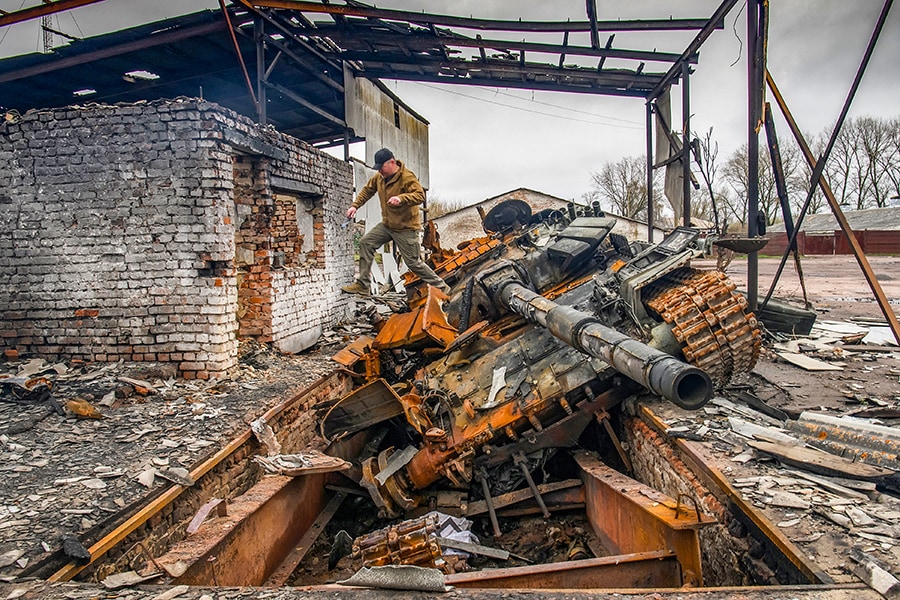
US Intelligence helping Ukraine kill Russian generals, officials say
The targeting help is part of a classified effort by the Biden administration to provide real-time battlefield intelligence to Ukraine that also includes anticipated Russian troop movements and more
 A man jumps from a Russian T-72 tank destroyed during Russia's invasion, in the village of Yahidne, Ukraine April 20, 2022. REUTERS/Vladyslav Musiienko
A man jumps from a Russian T-72 tank destroyed during Russia's invasion, in the village of Yahidne, Ukraine April 20, 2022. REUTERS/Vladyslav Musiienko
WASHINGTON — The United States has provided intelligence about Russian units that has allowed Ukrainians to target and kill many of the Russian generals who have died in action in the Ukraine war, according to senior American officials.
Ukrainian officials said they have killed approximately 12 generals on the front lines, a number that has astonished military analysts.
The targeting help is part of a classified effort by the Biden administration to provide real-time battlefield intelligence to Ukraine. That intelligence also includes anticipated Russian troop movements gleaned from recent U.S. assessments of Moscow’s secret battle plan for the fighting in the Donbas region of eastern Ukraine, the officials said. Officials declined to specify how many generals had been killed as a result of U.S. assistance.
The United States has focused on providing the location and other details about the Russian military’s mobile headquarters, which relocate frequently. Ukrainian officials have combined that geographic information with their own intelligence to conduct artillery strikes and other attacks that have killed Russian officers.
Officials interviewed for this article spoke on the condition of anonymity to discuss details of the classified intelligence being shared with Ukraine.
©2019 New York Times News Service







